Hans-Dieter Huober (IBM) with Ray Davies of 'The Kinks'
27 April, 2006 at the Renaissance Hotel, HamburgNot Like Everybody Else
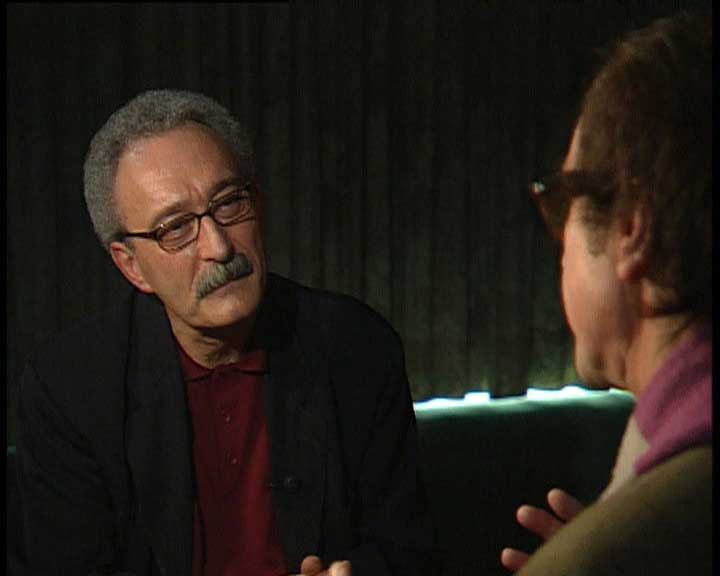
HUOBER: Ray, welcome to IBM
DAVIES: Ok, I never thought I'd ever be here, but here we are.
HUOBER: Standing ovations along your "Other People's Lives" tour,
great new songs, great performance of your timeless hits. How do you
keep the creativity and energy flowing?
DAVIES: Always it's the eternal question that people keep asking. And
when I started out writing songs people said to me, why do you do it?
And the more you do it, the longer period, they say, how do you do it?
Everybody needs to know how you do things.
I think it's something intuitive to begin with, intuition is very
important. But also I probably trained myself and you know, I never
thought I'd train for anything. I trained as an artist to draw and to
theater and make film.
And music came last. So I found myself having to make all these musical
songs, all these lyrics and things. I just looked at the world around me
where I grew up. You know, there's such a wealth of things out there to
write about if you really look at it.
I remember maybe the first 15 songs I wrote were all about my
neighborhood. You Really Got Me, you know, was about...inspired by a
girl.
But I don't think there's any formula. It's not formulaic. I work with
new writers a lot and I've been doing it now for like 15 years, getting
together, and they all ask me, how do you do it?
And I say there are no rules except you've got to know the basic kind of
structure. It's good to have a structure, I think. I've got a principle
of three: beginning, middle and end. And once you've got that, it seems
to work okay.
But it can be delineated, it can be cut down, it can be blown up to any
proportion you want. But I think the secret is with songs you have to
say a thing almost in one line. You know.
I was looking at my lyrics to the song "Other People's Lives" last
night, and it's five pages long. Probably, I think I was more editorial
when I was 19, when I've had my first hits. But as one progresses and
gets more experience and gets older we try to open up the music and make
it more novelistic.
But why do I do it? I think it's an instinct, a desire to want to
communicate things to people that you feel even though there only so
many plots in the world, there are only so many stories you can tell,
you try to find a unique way of doing it, that slightly different way of
pitching an idea
pitching an idea it sounds like a commercial, but, of explaining a
story to somebody in a way that's saying, oh, I never heard it quite
like that before.
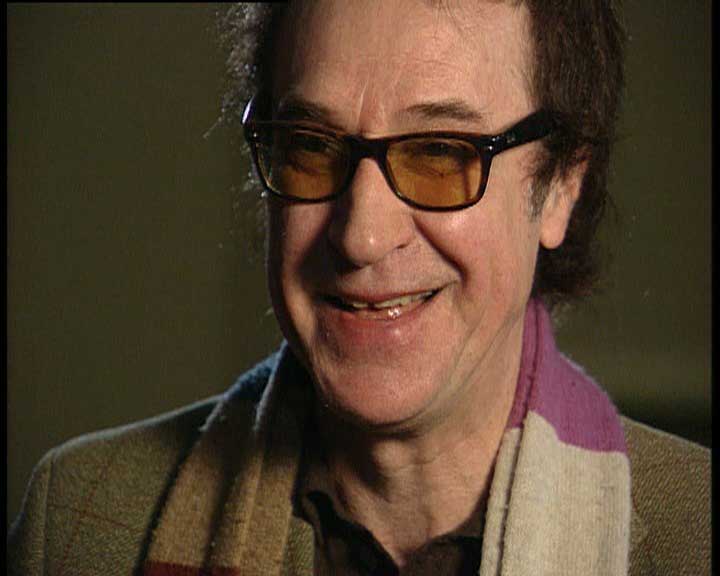
DAVIES: Well, I think when I first wrote songs, I thought it was a very insular thing. I just wrote about my neighborhood, and family, and people I knew. And I was very surprised, I was in Amsterdam and I got an award for "Muswell Hillbillies," which was about, it was about actually urban redevelopment, that album. It was inspired by the knocking down a lot of the inner city where my parents grew up.
And I thought it would be nice to write as if they were the Beverly Hillbillies being moved from the inner city out to the rich suburbs where they went. So that was the starting point for that.
But I got to Amsterdam, got this award, and I said, how can you understand something as uniquely to me English and London? And this guy said, uh, let me take you. And he took me in his car. He was a journalist.
He took me to his Muswell Hill. And they were doing the same thing to Amsterdam, they were knocking down old parts and moving society out.
So I think if you write, my feeling is if you can write about human beings, human beings exist everywhere. Language is, yes, different. Some cultures are different. But the basic human drive is really the same. And that's what, the point I was making in "Next Door Neighbor," everybody, in any society, no matter what the structure of the city or where you live, could communicate and relate through that song.
It's not, it's a universal thing, that's what's good about. And interpretation: always leave something open for interpretation for the individual to look into it. I try to do that. And give little clue lines. It's like a little plot. It's not as complicated as the Da Vinci Code, but it's my way of saying, here's a little lead here, oh, and if you heard that song, you will have a clue about what this person's like.
I like writing that way. It makes it entertaining for me, but it also I think gives...makes it more adventurous for the listener. And it gives the record durability, you can hear it four or five times and still discover something new in it. And that's the key to it.
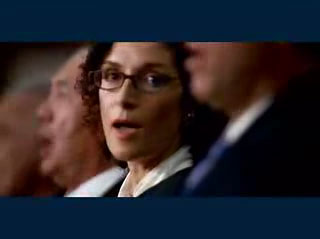
HUOBER: As you know, IBM is using "I'm Not Like Everybody Else" for
their innovation advertising. Did you ever think that IBM would feature
one of your songs?
DAVIES: I think when I wrote "I'm Not Like Everybody Else" IBM wasn't
invented.
[LAUGHTER]
I could be wrong, there may have been a guy somewhere in the Far East.
But I never thought... I think it's a very brave choice, because the
song itself is about radical and very vehement stubbornness to be an
individual. And to use it creatively in a campaign like that, and I saw
that...I saw a clip of it...
HUOBER: Yes.
DAVIES: ...the other day.
I think it's very brave to do that. There are so many other things that
could have been used. But I think it's a very, very smart choice. And it
made me think to myself, hmm, why didn't I think of that?
HUOBER: Do you like the commercial?
DAVIES: I do. I like the way the sonics work with the imagery. I've
only seen it once, but I think it's very good, good imagery, well
directed.
And that's another thing. You know, in advertising and the commercial
aspect, so many, many interesting developments in technology, that's
what's fascinating now. There's so many doors opened for creativity.
When I think I started I was frustrated with being an art student and
having not the funds to make small films. But the advent of video, now
digital technology, I think the door is open for incredible time for
creative people.
I'm very envious of people in the future. It will be incredible, you'll
be able to make feature films, you know, for very low budgets. So it's
great, great great possibilities out there. I think it's a very good ad.
HUOBER: What was your original inspiration to write "I'm Not Like
Everybody Else"?
DAVIES: I wrote it for my brother. It was a B...meant to be a B side.
I think it was a B side on a single we had, I forget which single now.
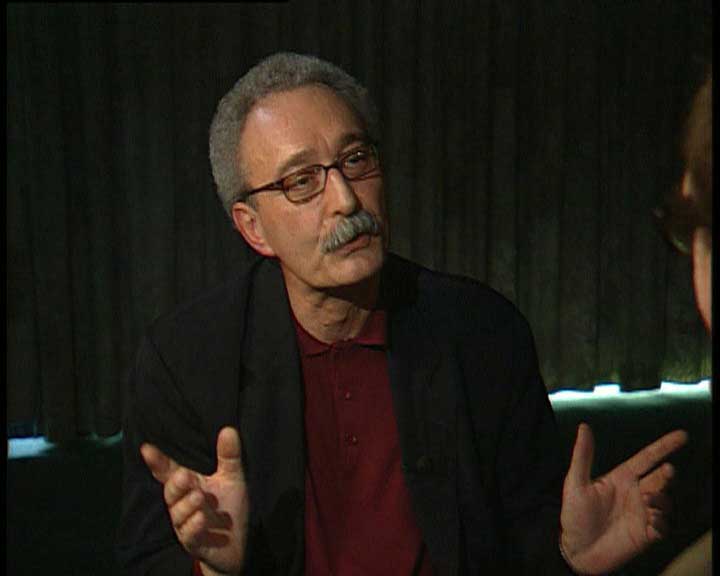
HUOBER: It's "Sunny Afternoon"...
DAVIES: B side of "Sunny Afternoon." See, I knew it was.... I always
knew "Sunny Afternoon" was a hit. In fact, I got the record company,
when I had the song, I don't know if this is interesting to "Sunny
Afternoon;" I want you to get it out.
It's going to be very hot [and] England, they're going to win the World
Cup. Soccer. And the head of the company said, why should I listen to
you? I said, because I'm right.
[LAUGHTER]
And I was gambling everything. And they stopped production to get that
record out in the quantity. They stopped production on other stuff,
other records. And it was number one.
So, but I wanted to give Dave something on the B side, and I wrote this
song for him because at that time he was about 18, 19, and he was
still...he was more outgoing than I. I am a quiet, reserved person on
the outside. I'm quite revolutionary inside. But his persona on stage
was very, very vibrant.
So I cast the song for him to sing, and I wrote it and he sang it. And
errr, in his growling little voice he had. So it was for him. I won't
take all the hand me down, I want to change the world.
You know, I knew, I was older, I was 21, I secretly knew, I was old
enough to know I couldn't change everything that way. So I let him
sing...
[LAUGHTER]
HUOBER: In business we find collaboration is essential, so I imagine
in the music business it's quite the same, songwriters, musicians, all
work together to create one piece of work. How does collaboration
motivate or challenge you in your work?
DAVIES: I think collaboration is essential, but they're
different...maybe it's not different. You know, I was never trained to
motivate...I was a team leader. I was always a...I was a captain of the
football team, I was a captain of everything in athletics, because I've
got this really stubborn streak in me.
But what I think what it was, is in getting this bunch of musicians
together, I searched hard for a bunch of people that I could work with.
Sometimes it's not necessary to have the people who are the best; it's
getting five people who can work together, because it's like passing the
baton: a relay team is as good as a baton change. And you usually find
that people that can work better mechanically with a baton change win
races.
And I look at musicians like that, and any, every band needs what I call
the sleeper player, someone who holds it back. In my first band it was
a drummer, he laid back. In this band it's the bass player. It's
interesting, because it is like a team. And it's something that in our
case can grow. It doesn't work first time. But I like seeing, putting
people together to work in groups.
When I work with new writers, I put them together in groups because
they're all coming in as individuals. I'll get 16 people a week, and
they come in, and they're all nervous and they're all afraid. And I say
to them, you're all doing the thing you really love doing, so let's
collaborate. And collaboration I think is the most important thing to
get out of people, to get them to exchange ideas, interact, it's vital.
And out of that, once you get people to do that, it's...you get magical
music. You get those inspirational moments you think, I don't know how
that occurred. It's a lot to do with telepathy, inspiration and
collaboration is vital.
So I look for that, when I was looking for musicians. I auditioned some
fantastic musicians, [bested] and I. But I didn't see them working in
the team. So that's the way I work.
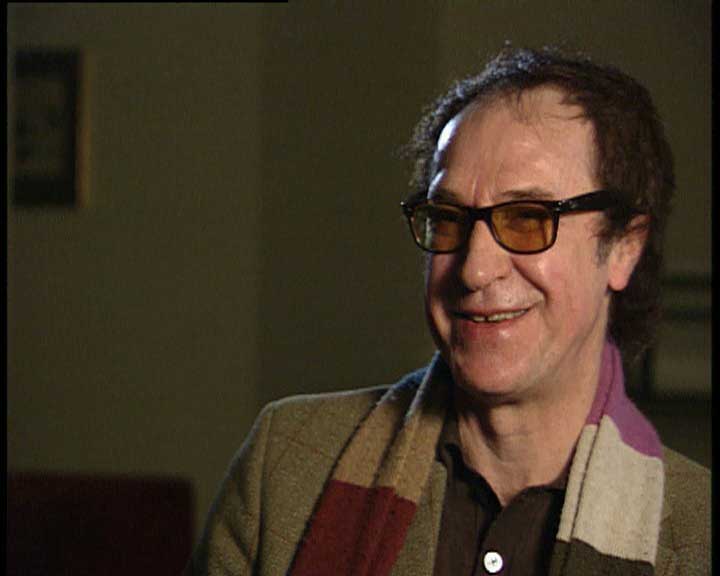
HUOBER: So IBM is made up of poets, musicians, writers, artists. We'd
love to get your thoughts, how can people, regular people with a
creative flair, make a difference?
DAVIES: You know, there's a poem by E.E. Cummings, he's a kind of
hippie writer in America, it's about this guy who failed all his life at
business, I forget what the poem is called. But he fails, and he fails,
and he tries again and tries again. And at the end of the poem the punch
line says, and so he died. But you know what he did? He started a worm
farm.
[LAUGHTER]
And it's a really bad theory, but resourcefulness I think is the key to
what I do. As I say, I got musical training a little bit when
I...because the whole family went to a piano tutor. But I gave up on
music and went to art.
But then I found myself throwing into this thing of writing songs, and
all I knew about was art composition. So I adapted the ideas to it.
And it's...I'm very, very lucky to have been able to have been born at a
time when that was possible, because now it's not so easy, because new
musicians have to know computers. The best of them, though, we've had a
few in our studio, don't use computers. They go back to music. The newer
wave musicians are doing that.
But I would just use what compositional knowledge I had with art and
illustration, and turn that into music. And I don't know how I did
that. I adapted ideas.
I did an album years...it's good to borrow from other structures, other
societies, like from sport. I relate to sport a lot, with team players
and team leaders. I think it's crucial.
And thank you, by the way, for Yen's name the other night. Is it Yens?
That was great. Anyway, there's a team leader, he's not the captain of
the team, but you need one inspirational person within a group.
But I find adapting and resourcefulness vital. And somebody will say to
me, I remember once our record company at the time, I said to them,
we're doing a new album, we're going on tour. Can we have tour support?
And they withdrew the funds because they having cutbacks. So I wrote a
song called "Low Budget."
HUOBER: Yes. [LAUGHTER]
DAVIES: And it our biggest success in America, because, you know, and
sometimes commerce dictates art. It does, because you look at all the
people, like, I don't know, Rembrandt. He always got on really badly
with his sponsors, you know, because he had to paint their heads all the
same size, it didn't matter where they were.
And it's...I think it's been an ongoing battle with creativity and
commerce, not just starting with record companies.
So I tend to adapt and look at the way it's going and think, not that I
feel it's essential to work in this way, but it's a useful tool to have,
because maybe you won't have limitless budgets always. And I use that as
an angry start to something, and ended up very successful.
HUOBER: This is amazing.
DAVIES: Yes.
And do you know what? To follow that story through, the president of the
company, we'd finished the album, we knew it was going to be successful
in America. We were doing the artwork and it was called "Low Budget."
And he phoned me up at the artwork shoot, and he said, Ray, I'm really
worried. The album's called "Low Budget" but we're retailing at $9.98.
[LAUGHTER]
Which is full price.
[LAUGHTER]
I said, listen, you asked for this. You got it. And so I would think
people like that sense of irony. And so it's never ending, the battle
between so called art and commerce. I think the secret is if you're
given a piece of string and a stick, turn it into something.
[LAUGHTER]
HUOBER: In closing, what else can you tell us to keep our ideas fresh
-- in short, innovating?
DAVIES: I know this lady, where I live in London at the moment, I
live on the top hill. It's the highest spot in London.
And I meet this old lady occasionally, and she walks up the hill
backwards. She's about 85. And I said, madam, why are you doing this?
She says, it keeps my perspective fresh. Because...and it tones up the
back of her legs, because she has problems walking.
And I think sometimes when you're in a situation and you go through the
mode daily routine, stop, look round, turn the other way, because
there's always something going on out of your perspective.
And [basically] step back occasionally. That's all I do. But I often
think about that lady. She'll probably live to be 180, because she's
always working on her legs to get them strong, keep them strong. And
also her perspective.
It's, and the same applies to music, and I think most things. There's
always a different way. There's always a new way of doing things if you
really put your mind to it. The joy is finding other people to
actually...the joy is to find other people to go through that experience
with.
HUOBER: Ray, thank you very much for the interview.
DAVIES: Okay.
HUOBER: And all the best for your tour.
DAVIES: Thank you. And I hope you find some of this makes sense.
HUOBER: Yes. A lot.
DAVIES: Okay.
HUOBER: Thank you very much.
DAVIES: Thank you. Good luck. Bye.
[END OF SEGMENT]
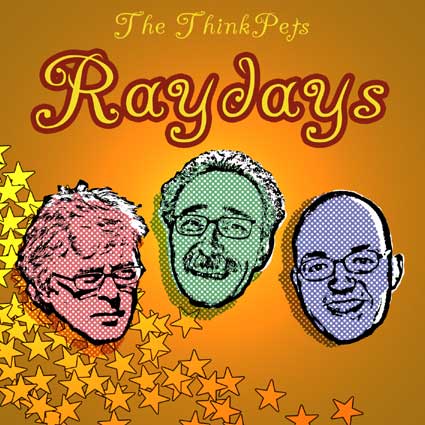 Check out the song written about interviewing Ray: Raydays.
Check out the song written about interviewing Ray: Raydays.
